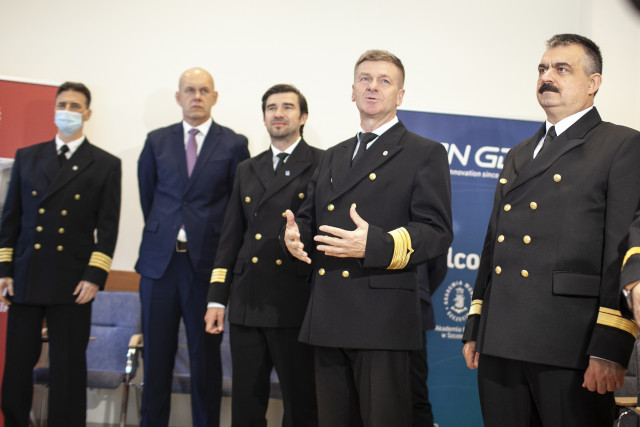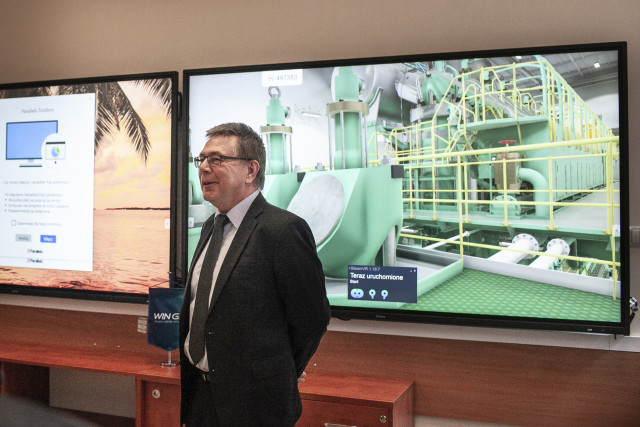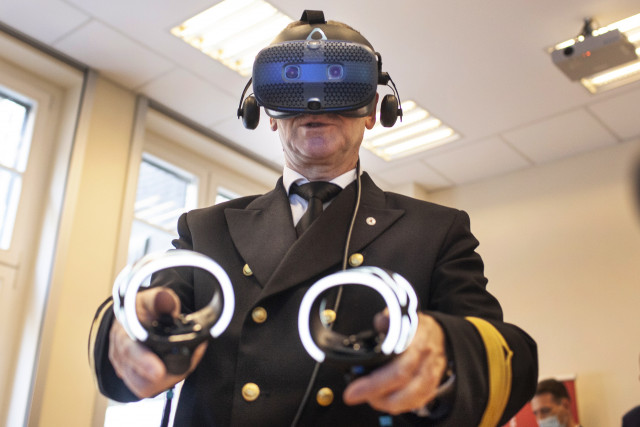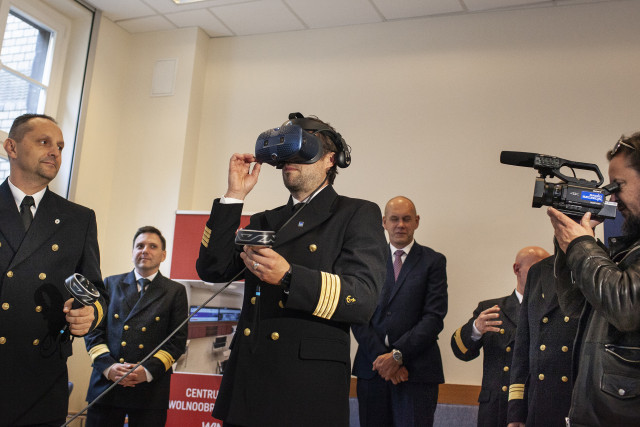The new training centre with a VR low-speed engine simulator has been recently opened in the Maritime University of Szczecin main building.
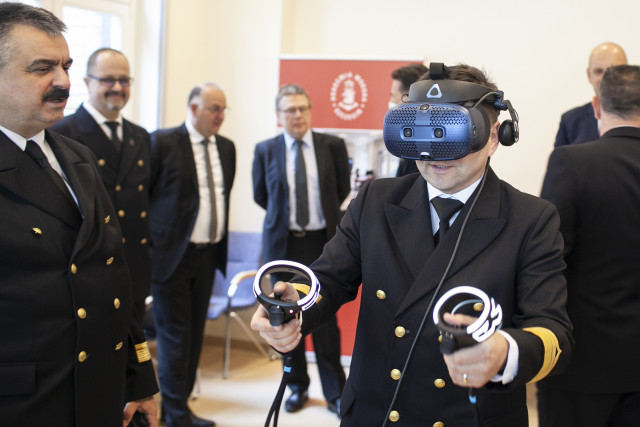
What are the capabilities of the new simulator and who is going to use it?
It will serve both, the Faculty of Mechanical Engineering students and mechanics upgrading their qualifications and wishing to earn new certificates.
Low-speed WinGD (Winterthur Gas & Diesel) engine training centre is a highly specialised laboratory that provides training for the maintenance and operation mechanics of some of the world's most widely used types of engines for ship propulsion.
Training takes place on a simulator, which is based on virtual reality. This form of training allows the trainee to become familiar with the environment of future work, learn the secrets of many types of engines, without having to enter the ship's engine room.

Thanks to this unique equipment, we have an opportunity, without being physically present on the ship, to practice the engine maintenance, get used to the space around - all in virtual reality. This is a very useful experience - stressed the Vice-Rector for Maritime Affairs, Arkadiusz Tomczak, PhD Eng., Master Mariner, MUS Professor.
Cooperation with WinGD enables from now on, the Maritime University of Szczecin to provide training for operators of low-speed engines manufactured under the WinGD licence and powered with both liquid and gas (e.g. LNG) fuels.
MUS cooperation with the business partner
The training facilities will be supervised and updated by the WinGD. This is an excellent example of successful cooperation between our University and a business environment - in this case, the unquestioned leader in smart power solutions.
Without boarding a ship and before practical training - with this simulator, everyone can gain real experience - says Grzegorz Sudwoj, a representative of WinGD. - On the simulator, one can also gain important safety knowledge and skills. Ships’ crews can practice on this equipment in different dangerous situations that would not normally be simulated onboard without creating some risk- adds Grzegorz Sudwoj.
The laboratory supervisor at MUS, Piotr Treichel, PhD Eng., draws attention to the need of including practical training in the education process. - Today, it is not possible to provide education relying only on book knowledge, chalk and a blackboard," he stresses. - Thanks to such equipment we can teach young people many more things, being confident they will acquire the necessary knowledge," he adds.
About WinGD
WinGD continues the tradition of Wärtsilä Switzerland Ltd. and Sulzer Ltd. - which were the leaders in the design and manufacture of low-speed main engines for ship propulsion and have cooperated for decades with Polish shipyards and factories. WinGD is today an important player in the market of low-speed engine developers, with many years of experience and potential in the production of modern marine engines.
